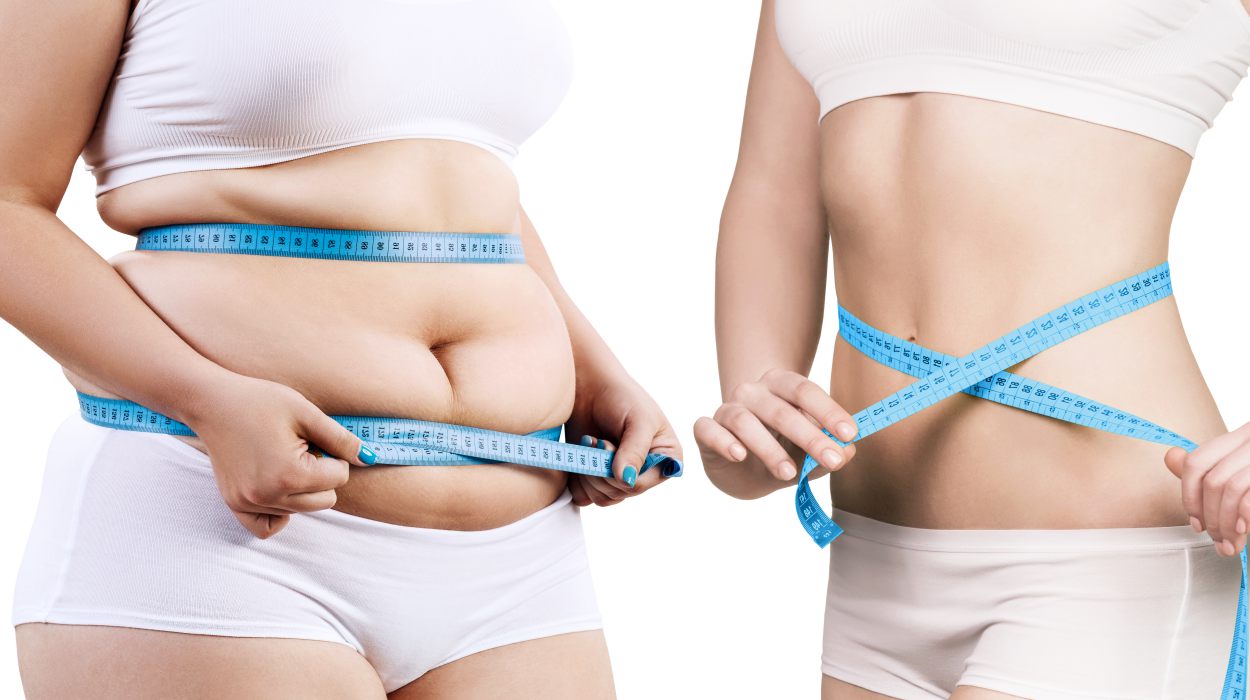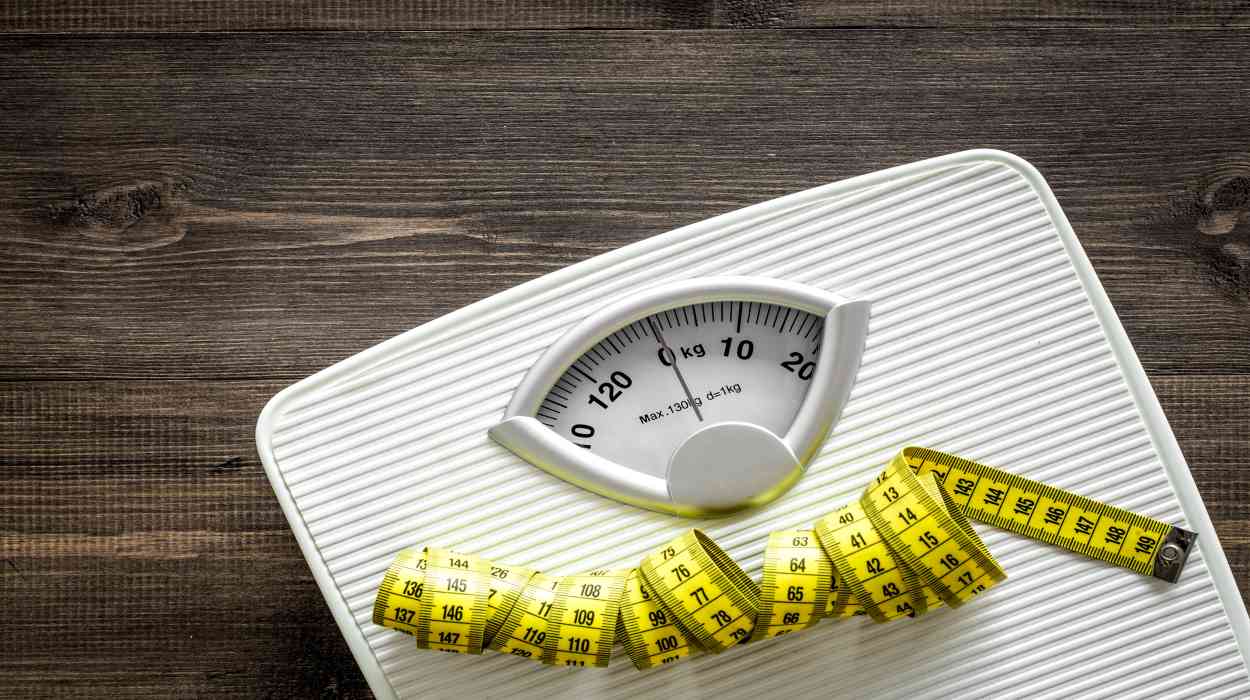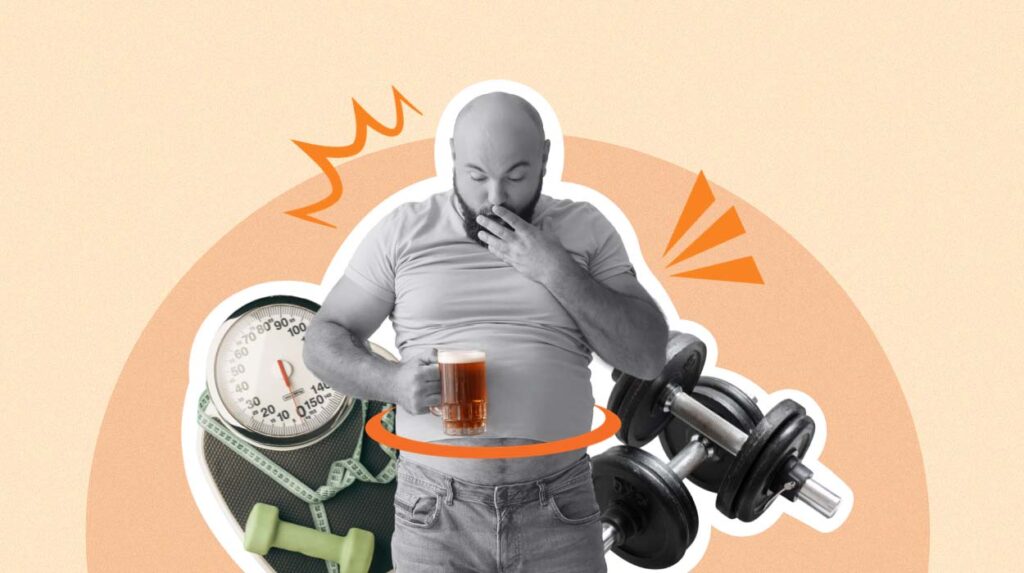
Losing body fat is a common goal for many people, but it can be challenging to know where to start. With so many fad diets and conflicting advice, it can be difficult to determine the most effective strategies for losing body weight. In this article, we’ll explore evidence-based ways to lose body fat that can help you achieve your goals.
What Is Body Fat And Tips To Lose Body Fat?
Body fat[1] is a type of adipose (fatty) tissue that serves several important functions in the body, including energy storage and insulation. However, excess body fat can have negative health consequences[2], including an increased risk of chronic diseases such as diabetes, heart disease, and certain cancers. And then the way to reduce body fat:
- Try limiting carbs rather than fats
- Begin strength training
- Get more sleep
- Lift weights
- Drink healthier beverages
How To Lose Body Fat Fast?

To lose fat mass, we need to create a calorie deficit. This can be achieved through a combination of diet and exercise. Here are some evidence-based ways to body fat:
Try Limiting Carbs Rather Than Fats
While a low-fat diet was once popular for weight loss, research suggests that low-carbohydrate diets[3] may be more effective for promoting fat loss. This is because low-carbohydrate diets can help lower insulin levels[4], which in turn can boost burn fat. Keep in mind, that the ratio of carbohydrates in each person’s diet is very individual and based on age, sex, weight, and current exercise level. For the average, sedentary person the amount of carbohydrates might be less compared to an amateur athlete who works out 3-5x a week.
Begin Strength Training
Strength training exercises can help to increase muscle mass, which can help to promote fat burning and improve body composition[5]. Additionally, strength training can help to increase bone density[6] and reduce the risk of osteoporosis.
Get More Sleep
Research suggests that getting enough sleep[7] is important for regulating appetite and promoting fat loss. One study found that participants who slept less than 7 hours per night had an increased risk of obesity and weight gain compared to those who slept 7-9 hours per night. In general, lack of sleep causes fatigue during the day, decreased energy levels, and increased hunger as the body tries to maintain stable blood sugars for energy. A common tendency is that people often overeat when they’re tired.
Lift Weights
In addition to strength training exercises, lifting weights can also help to promote fat loss and improve body composition[8]. This is because weight lifting can help to maintain muscle mass and boost metabolism[9], which can in turn help to promote fat burning. Contrary to popular belief, lifting weights doesn’t make a person “bulky” but instead changes muscle shape as a person gradually body fat loss.
Drink Healthier Beverages
Choosing healthier beverages such as water, tea, and coffee instead of sugary drinks can help reduce caloric intake[10] and promote fat loss. Sugary beverages such as alcohol, carbonated drinks, and juices can contribute to weight gain and an increase in body fat because of their calorie content. Unfortunately, many of these beverages contain a lot of sugar, which most people forget when calculating their calorie consumption. In addition, drinking water before meals[11] can help curb appetite and promote a feeling of fullness.
Why Is It So Hard To Reduce Body Fat?
Losing body fat can be challenging for several reasons because the body is designed to store energy in the form of trans fats. For one, the body is designed to maintain a stable weight, so it can be resistant to changes in body fat levels[12]. Additionally, many factors can influence body fat levels, including genetics, hormones, and lifestyle habits such as diet and exercise.
What Is A Healthy Body Fat Percentage?

A healthy body fat percentage[13] varies depending on age, sex, and overall health. Generally, a body fat percentage of 10-22% for men and 20-32% for women is considered healthy. However, athletes may have lower body fat percentages due to their energy output, training regiment, and diet.
Losing Body Fat Vs. Losing Weight
It’s important to note that losing body fat is not the same as losing weight. To lose weight can involve losing fat, muscle, and water weight, which can have negative health consequences. Losing body fat, on the other hand, involves maintaining or increasing muscle mass while losing fat. This approach is more beneficial for overall health and can improve body composition.
Conclusion
Losing body fat can be challenging, but with the right combination of diet and exercise, it’s achievable. It’s important to maintain a healthy body fat percentage to reduce the risk of health problems related to cardiovascular disease and obesity. Incorporating strategies such as limiting carbs, strength training, getting more sleep, lifting weights, and drinking healthier beverages can help you achieve your body fat loss goals.
Frequently Asked Questions
While it’s possible to body fat loss quickly, it’s not always sustainable or healthy. Rapid weight loss can lead to muscle loss and can impact metabolism. Aim for a gradual and steady weight loss of 1-2 pounds per week.
Both cardio and strength training can be effective for losing body fat. Cardio helps burn calories, while strength training can increase muscle mass, boost metabolism, and aid in fat loss. Incorporating both into your exercise routine can provide optimal results.
There is no one-size-fits-all diet for losing body fat. However, reducing calorie intake and limiting carbohydrates can be effective for weight loss. Focus on consuming whole, nutrient-dense foods and avoiding processed and sugary foods.
Yes, stress can impact body fat percentage by increasing cortisol levels, which can lead to weight gain and increased belly fat. Incorporating stress-management techniques such as meditation, yoga, and deep breathing can help reduce stress levels.
Unfortunately, spot reduction of body fat is not possible. To reduce body fat in specific areas, you need to reduce overall body fat percentage through a combination of diet and exercise.
Yes, alcohol consumption can impact body fat percentage by increasing calorie intake and inhibiting fat burning. Limiting alcohol consumption or avoiding it altogether can help achieve optimal body fat loss results.
Results can vary depending on individual factors such as age, gender, and activity level. However, consistent effort in following a healthy diet and exercise routine can yield results in as little as four to six weeks.
While some supplements may aid in body fat loss, it’s essential to consult with a healthcare professional before taking any supplements. A healthy diet and exercise routine should be the primary focus for achieving body fat loss goals.
+ 13 Sources
Tnhealth has strict sourcing guidelines and relies on peer-reviewed studies, academic research institutions, and medical associations. We work mostly with peer-reviewed studies to ensure accurate information. We avoid using tertiary references. You can learn more about how we ensure our content is accurate and current by reading our editorial policy.
- APA PsycNet. psycnet.apa.org. Accessed June 10, 2023. https://psycnet.apa.org/record/1999-05828-001
- M B, P P, I L, Jp D. Overview of Epidemiology and Contribution of Obesity to Cardiovascular Disease. Progress in cardiovascular diseases. Published January 1, 2014. https://pubmed.ncbi.nlm.nih.gov/24438728/
- Frestedt JL, Zenk JL, Kuskowski MA, Ward LS, Bastian ED. A whey-protein supplement increases fat loss and spares lean muscle in obese subjects: a randomized human clinical study. Nutrition & Metabolism. 2008;5(1):8. doi:https://doi.org/10.1186/1743-7075-5-8
- Volek JS, Sharman MJ, Love DM, et al. Body composition and hormonal responses to a carbohydrate-restricted diet. Metabolism. 2002;51(7):864-870. doi:https://doi.org/10.1053/meta.2002.32037
- Wang LL, Wang Q, Hong Y, et al. The Effect of Low-Carbohydrate Diet on Glycemic Control in Patients with Type 2 Diabetes Mellitus. Nutrients. 2018;10(6):661. doi:https://doi.org/10.3390/nu10060661
- Donnelly JE, Hill JO, Jacobsen DJ, et al. Effects of a 16-Month Randomized Controlled Exercise Trial on Body Weight and Composition in Young, Overweight Men and Women. Archives of Internal Medicine. 2003;163(11):1343. doi:https://doi.org/10.1001/archinte.163.11.1343
- Sl W, Bk W, Lj W, At H, Sa H, Br B. High-Intensity Resistance and Impact Training Improves Bone Mineral Density and Physical Function in Postmenopausal Women With Osteopenia and Osteoporosis: The LIFTMOR Randomized Controlled Trial. Journal of bone and mineral research : the official journal of the American Society for Bone and Mineral Research. Published February 1, 2018. https://pubmed.ncbi.nlm.nih.gov/28975661/
- Papatriantafyllou E, Efthymiou D, Zoumbaneas E, Popescu CA, Vassilopoulou E. Sleep Deprivation: Effects on Weight Loss and Weight Loss Maintenance. Nutrients. 2022;14(8):1549. doi:https://doi.org/10.3390/nu14081549
- Dolezal BA, Potteiger JA. Concurrent resistance and endurance training influence basal metabolic rate in nondieting individuals. Journal of Applied Physiology. 1998;85(2):695-700. doi:https://doi.org/10.1152/jappl.1998.85.2.695
- Kraemer WJ, Ratamess NA. Hormonal Responses and Adaptations to Resistance Exercise and Training. Sports Medicine. 2005;35(4):339-361. doi:https://doi.org/10.2165/00007256-200535040-00004
- Soeliman FA, Azadbakht L. Weight loss maintenance: A review on dietary related strategies. Journal of Research in Medical Sciences: The Official Journal of Isfahan University of Medical Sciences. 2014;19(3):268-275. https://pubmed.ncbi.nlm.nih.gov/24949037/
- Langdon SW, Dennee-Sommers B. Exploring the relationships between self-objectification, rationales, and use of water as a strategy for appetite suppression. Psychology, Health & Medicine. 2010;15(1):17-25. doi:https://doi.org/10.1080/13548500903431519
- Tomlinson D, Erskine R, Morse C, Onambélé G. Body Fat Percentage, Body Mass Index, Fat Mass Index and the Ageing Bone: Their Singular and Combined Roles Linked to Physical Activity and Diet. Nutrients. 2019;11(1):195. doi:https://doi.org/10.3390/nu1101019







 By
By 

 By
By 
 By
By 